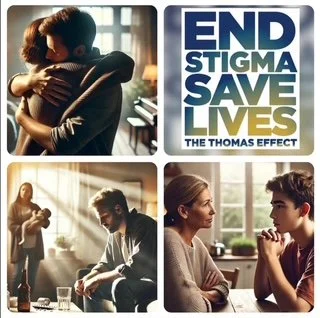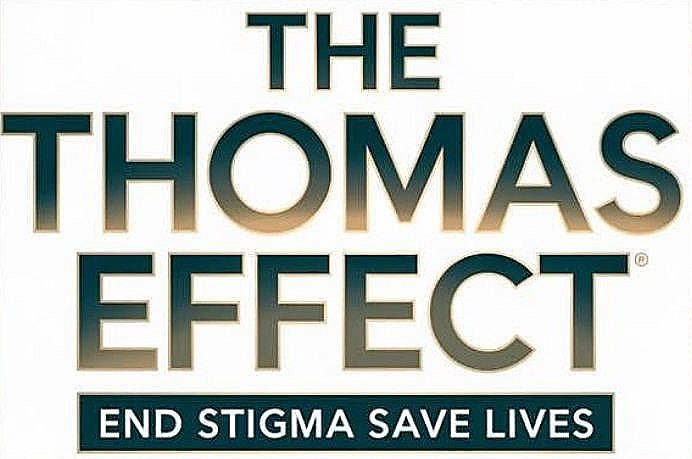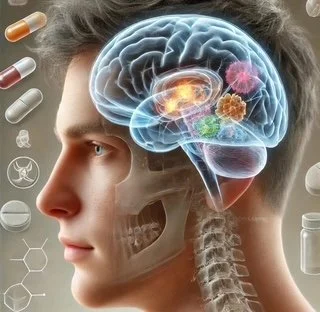
Newsflash: Sometimes Good People Use Drugs
Who uses Drugs?Let’s talk about the truth behind the stigma!
You’ve heard it said before maybe even thought it: “They don’t look like someone who’d do drugs.” “She has a great job, why would she be using?” “He was raised right. That stuff’s a choice.”
Let’s be clear: There is no single “type” of person who uses drugs.
Good people use drugs. Bad people use drugs. Sick people, sad people, lonely people. Happy people. Curious people. Religious people. Rich kids. Homeless folks. Working moms. Retired veterans. People with PhDs. People with trauma. People just looking for a good time. People just trying to survive.Drug use doesn’t have a face, and it sure doesn’t define someone’s worth.
So… Who Really Uses Drugs?
According to the 2021 National Survey on Drug Use and Health (SAMHSA):
• 61.2 million people in the U.S. used illicit drugs in the past year
• 133 million people (47% of adults) reported drinking alcohol in the past month
• 29.5 million used marijuana
• 8.7 million misused prescription pain relievers
• 2.2 million used methamphetamine
That’s not some fringe group. That’s a huge chunk of society including people you go to church with, work with, and live next to.
Why Do People Use Drugs?
There are as many reasons as there are people. Some of the most common include:
• To celebrate or socialize (birthdays, weddings, festivals, parties)
• To escape pain (trauma, grief, abuse, heartbreak)
• To feel normal (self-medicating mental health conditions)
• To experiment (teen curiosity, peer pressure, “just once”)
• To enhance focus or performance (stimulants for work or school)
• To connect to spirituality or culture (think peyote, cannabis in some religious ceremonies)
• Because it’s everywhere (easy access, normalized drinking culture)
The truth is: Drug use doesn’t always start in darkness, but for some, it can end there especially for those predisposed to Substance Use Disorder, (SUD) and addiction.
Addiction Is Not Just “Bad Choices”
Some people can try a substance and walk away. Others can’t. That’s not about willpower it’s about wiring. Addiction is influenced by:
• Genetics About 40-60% of a person’s risk is inherited
• Environment Childhood trauma, poverty, exposure to substance use
• Mental health Depression, anxiety, PTSD, bipolar, and more
• Brain chemistry Some brains are more vulnerable to the reward cycle of addiction
What starts as a choice can become a compulsion. What starts as a coping mechanism can become a trap. And once the brain changes, it’s not just about saying no. It’s about needing help.
Good People Use Drugs. Period. We’ve got to stop acting like drug use makes someone dangerous, dirty, or disposable. It doesn’t. Some of the kindest, smartest, most loyal, big-hearted people you’ll ever meet have struggled with substance use. Some recovered. Some didn’t. But all of them were worthy of love, support, and a second chance.
Let’s replace shame with understanding. Let’s tell the truth: You can be a good person and still need help.
At The Thomas Effect, we believe in second chances, multiple paths to recovery, and meeting people where they are. We fight stigma with stories, facts, and love and we never forget that behind every statistic is someone’s brother, sister, parent, or child.
Sources:
• SAMHSA: 2021 National Survey on Drug Use and Health
• NIDA: Genetics and Epigenetics of Addiction
• CDC: Alcohol Use Data and Statistics
• Pew Research Center: Religion and Drug Use (2021)
“Are you open to something Brother?”

Redefining Recovery
At The Thomas Effect, we’re not just here to raise awareness we’re here to change the way the world sees addiction and recovery. For too long, people have been told there’s only one way to recover. That if they’re not clean in a certain way, or if they need medication, or if they slip up, that they’ve failed.That’s not truth. That’s stigma. Shame and stigma is what keeps people sick and we’re done with it. We believe recovery is not one-size-fits-all.
Different Paths, Same Goal: Life
Medication-Assisted Treatment (MAT) helps many people stabilize and rebuild.
Abstinence-based programs offer powerful structure and community.
Harm reduction keeps people alive long enough to choose recovery when they’re ready.
Faith-based healing can be life-changing.
Cultural practices, trauma-informed care, and mental health support are crucial.
Some people find freedom through 12-step programs. Some through faith. Some with the help of medication. Some in therapy, in sweat lodges, in nature, in art, in community. Guess what? They’re all valid. No matter what path someone chooses, one thing is clear across the board: recovery requires support. No one can do it alone and they shouldn’t have to.
This is what redefining recovery looks like.
It’s human. It’s real. It’s time.
You Belong Here if you’re in recovery, we see you. If you’re still using, we love you. If you’re grieving, we stand with you. If you’re learning, we welcome you and if you’re fighting for someone you love, we’re right beside you.
There is no perfect path. Only the one that keeps you going.
Want to See the Research?
If you’re someone who likes data, you’re not alone. We do too.
Here are just a few trusted sources that back up what we’ve seen firsthand:
• SAMHSA: Recovery Pathways Report
A deep dive into how real people find lasting recovery—through many different paths.
• PubMed: Individual Paths to Recovery
A review of studies showing the importance of flexibility, support, and lived experience.
• Recovery Research Institute: Pathways to Recovery
Science-backed insights into how recovery works and why one size doesn’t fit all.
LET’S TALK ABOUT STIGMA SURROUNDING SUBSTANCE USE DISORDER (SUD)
Stigma surrounding Substance Use Disorder (SUD) is the biggest barrier to change and fuels the crisis we are desperately trying to end.
It’s the reason people don’t reach out for help.
It’s the reason families suffer in silence.
It’s the reason we don’t have the funding, resources, or policies needed to save lives.
It’s the reason people don’t feel worthy of a better life.
It’s the reason people don’t take the medication they need to get better.
It’s the reason people are DYING.
We can’t change the outcome if we don’t change the narrative. Substance Use Disorder is not a moral failure-it’s a complex, life-stealing disease. Until we start seeing people as people instead of statistics or stereotypes, things will never change, and we will continue to lose people like my brother, Thomas Alexander McConatha.
It’s time to END THE STIGMA. Lives depend on it.
How do we change the narrative?
Use person-first language. Instead of saying “addict,” say “a person with Substance Use Disorder.” Words matter.
Educate, don’t judge. SUD is a disease, not a choice. Learn the science behind it and share that knowledge.
Recognize that recovery is not one-size-fits-all. There are multiple paths to healing, including therapy, 12 Step programs, peer support, harm reduction, and medication-assisted treatment (MAT)-all of which can be life-saving. Recovery looks different for everyone, and every step forward matters.
Support harm reduction. Narcan, fentanyl test strips, and medication-assisted treatment save lives. Education plus compassion saves lives and recovery is only possible if people stay alive.
Advocate for better policies. We need more funding for treatment, mental health care, and recovery support, not more punishment and shame.
Lead with compassion. No one heals in isolation. Love, understanding, and community change lives.
This is not about replacing accountability-it’s about accountability with compassion. People don’t get better when they are shamed, punished, or discarded. They get better when they are given the support and tools to heal.
Ending stigma starts with us. Let’s change the conversation and save lives.

What Are Co-Occurring Disorders and Why do they Matter?
Co-occurring disorders, also known as dual diagnosis, happen when someone is living with both Substance Use Disorder (SUD) and a mental health condition at the same time.
This could look like:
• Depression and alcohol use
• PTSD and prescription pills
• Bipolar disorder and cocaine
• Anxiety and methamphetamine
This is more common than most people realize. In fact:
• 9.2 million adults in the U.S. had co-occurring disorders in 2021
(Source: SAMHSA, 2021 National Survey on Drug Use and Health)
• Nearly 50% of people with a substance use disorder will also experience a mental health disorder during their lifetime
(Source: National Institute on Drug Abuse)
• People with mental illness are more than twice as likely to develop a substance use disorder
(Source: NIDA)
This is not a moral failing. It’s not a lack of willpower. It’s a health issue that deserves real, compassionate care.
The Problem With How We Treat It
Too many treatment programs still separate mental health and addiction like they’re unrelated. Someone might go to rehab and be told, “We don’t treat anxiety here, go see a psychiatrist first.” Or they’ll be sent to a mental health facility and told, “We can’t help until you’re clean.” That’s not how real life works. Mental health and substance use are deeply connected. You can’t treat one and ignore the other, not if you want real healing.
What Causes Co-Occurring Disorders?
There’s no single cause. It can stem from:
• Trauma
• Genetics
• Environmental stress
• Early exposure to substances
• Untreated mental illness
Sometimes, substance use starts as a way to self-medicate. Other times, drugs may trigger or worsen mental health symptoms. Often, it’s a painful mix of both. The answer is the same: integrated, compassionate care that treats the whole person.
What Recovery Can Look Like
Recovery from co-occurring disorders isn’t one-size-fits-all but it is possible. It takes:
• Therapy that goes beyond surface-level symptoms
• Medication when appropriate, without judgment
• Community support and peer understanding
• Resources that promote stability: housing, food, purpose
It’s about creating a path forward that includes both mental wellness and freedom from addiction.
Why We Talk About It
We talk about co-occurring disorders because we’ve lived it, seen it, and lost people to it. Too many people are told they’re “too complicated” or “not ready yet.” How do you get ready when you’re drowning?We have to talk about it because every person deserves a chance to heal no matter how complex their story is.
If you or someone you love is living with a co-occurring disorder, please know: there is help. There is hope. You are not alone.
Resources & Support
Here are trusted organizations that offer education, treatment options, and support:
• Substance Abuse and Mental Health Services Administration (SAMHSA)
• 24/7 National Helpline: 1-800-662-HELP (4357)
• Offers treatment locator, crisis services, and dual diagnosis info
• National Institute on Drug Abuse (NIDA)
• Science-based information on addiction, co-occurring disorders, and treatment research
• National Alliance on Mental Illness (NAMI)
• Education, advocacy, and peer support for those living with mental illness and substance use
• Psychology Today’s Therapist Finder
• Search by specialty, including dual diagnosis and co-occurring disorders
• Partnership to End Addiction
• Resources for families, including support for mental health and substance use

MAT Misunderstood: Myth vs. Fact
Medication-Assisted Treatment (MAT) uses FDA-approved medications like buprenorphine (Suboxone), methadone, or naltrexone, alongside counseling and support, to treat opioid use disorder. Despite decades of research, many people still believe MAT isn’t “real” recovery. That stigma is keeping people from life-saving treatment and it’s costing lives. Here are a few myths about MAT.
MYTH: MAT is just trading one drug for another.
FACT: Buprenorphine and methadone do not get people high. They stabilize brain chemistry, reduce cravings, and help people function normally. In reality they are trading a drug that could kill them, for one that could save them.
MYTH: MAT isn’t real recovery.
FACT: According to NIDA, people on MAT are 66% less likely to die from opioid-related causes than those not receiving medication. That’s recovery. Unfortunately, because of stigma many people hide the fact that they take medication or thefeel pressured to taper off too soon putting them at serious risk for relapse, overdose and death.
MYTH: People on MAT are still addicted.
FACT: Addiction is about loss of control and continued use despite harm. MAT restores control. It helps people return to work, care for families, and live full lives.
MYTH: You have to get off MAT to be clean.
FACT: Recovery is not one-size-fits-all. For some, staying on MAT long-term is the safest and most effective path and that’s valid.
MYTH: MAT enables drug use.
FACT: MAT reduces relapse, overdose, disease transmission, and criminal activity. It’s a tool that helps people stop using, not an excuse to continue.
THE REALITY:
MAT is one of the most effective, evidence-based tools we have to fight the opioid crisis yet stigma still keeps too many people from accessing it. It’s time we stop the judgment and start supporting every path to recovery.
Want to dig deeper? Here are some great resources to learn more about MAT (Medication Assisted Treatment)
Whether you’re in recovery, love someone who is, or just want to understand the facts—these trusted resources break it all down.
SAMHSA – Medication-Assisted Treatment Overview
Covers the basics of MAT, types of medications, how it works, and where to find treatment.
https://www.samhsa.gov/substance-use/treatment/options
CDC – MAT and Opioid Use Disorder
Explains the public health impact of MAT, how it reduces overdose deaths, and its effectiveness in long-term recovery.
National Institute on Drug Abuse (NIDA)
In-depth research and stats on how MAT helps with brain stabilization, relapse prevention, and harm reduction.
Shatterproof – MAT Resource Center
Great for families and advocates. Helps explain how MAT is used for different substances.
https://www.shatterproof.org/treatment/Medication-Assisted-Treatment-For-Each-Substance-1
Partnership to End Addiction – MAT Myths vs Facts
Clear, readable breakdown of common misconceptions about MAT.
https://drugfree.org/article/remove-barriers-to-methadone-treatment-for-opioid-use-disorder/




